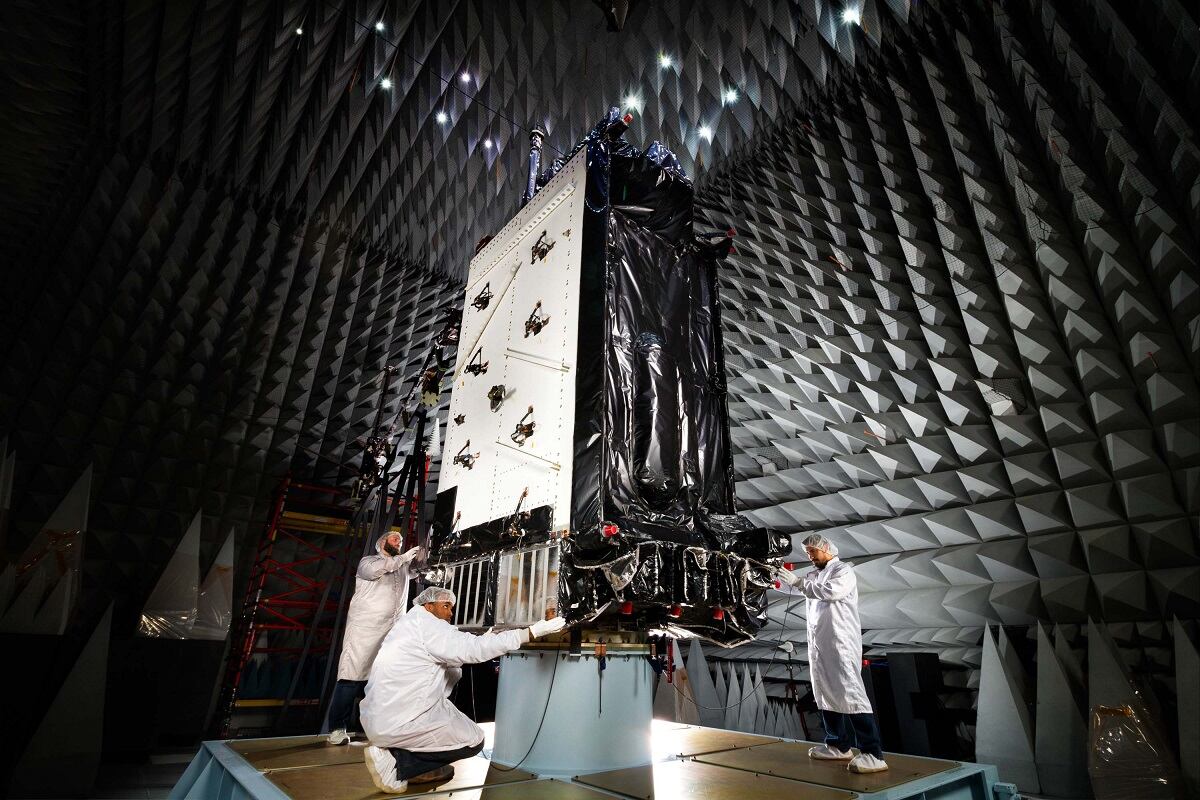WASHINGTON — The U.S. Space Force will pay $378 million to replace the computer hardware in Raytheon’s troubled Operational Control System after the original provider was sold to a Chinese company.
The program, known as OCX, was initially going to use hardware from the IBM x86 product line in the building of next-generation GPS ground stations, the Space and Missile Systems Center said in a Friday news release. However, that product line is being sold to Chinese-owned Lenovo in August 2022 — a purchase approved in 2014 by the Committee on Foreign Investment in the United States, the U.S. government organization that reviews international investment in American companies.
The Air Force already performed work to identify the replacement for the IBM hardware. In 2017, it started a hardware trade study with U.S. vendors, selecting Hewlett Packard Enterprise for a pilot program that called for the company to replace hardware in 17 external monitoring stations and four ground antenna sites, according to Space and Missile Systems Center.
However, SMC said it chose to wait on funding new hardware until now so that it could focus on OCX’s other technical issues — even though the center also acknowledged that the move would lead to schedule delays.
RELATED

“At the time of the sale, the government identified [the sale] as a major impact to OCX by creating an unacceptable cyber risk,” SMC noted. However, the Air Force waited to execute the hardware replacement because of ongoing software development issues, which led to spiraling cost overruns and a Nunn McCurdy breach in 2016.
The service ultimately decided against canceling the program and moved forward with a plan to develop OCX software using more agile DevOps methodologies. Raytheon competed the software for the program last year, said SMC Commander Lt. Gen. Thompson.
“As Raytheon continues to track to their contractual commitments, addressing the unsupportable IBM cyber security risk is prudent to do pre-system delivery to the government,” said Lt. Col. Thomas Gabriele, SMC’s OCX materiel leader. “Although this government-directed change will impact the Raytheon schedule, the government is holding Raytheon accountable to deliver qualified software prior to integrating on the HPE platform and deploying to operational sites.”
SMC did not disclose exactly how the schedule would be impacted.
In its news release, SMC described some “benefits” to changing the current contract, such as being able to field newer, more highly performing hardware in place of the decade-old IBM wares. Executing the fix now will also eliminate $150 million in rework and retesting, said Barbara Baker, SMC’s Command and Control Division’s senior materiel leader.
Valerie Insinna is Defense News' air warfare reporter. She previously worked the Navy/congressional beats for Defense Daily, which followed almost three years as a staff writer for National Defense Magazine. Prior to that, she worked as an editorial assistant for the Tokyo Shimbun’s Washington bureau.








